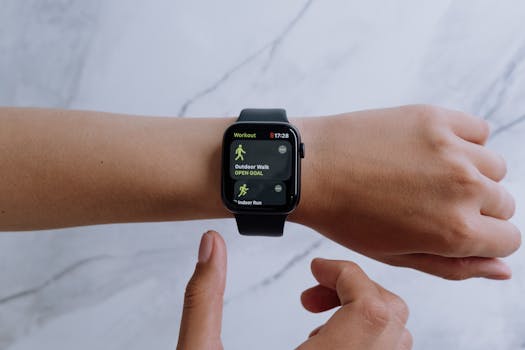Advances in Digital Health Technology
Digital health technology is transforming the way healthcare is delivered, making it more accessible, efficient, and personalized. The integration of advanced digital tools and platforms is reshaping patient care, diagnostics, treatment plans, and even the overall healthcare infrastructure. This article explores the major strides made in digital health technology, highlighting key innovations and their impact on both healthcare providers and patients.

Telemedicine and Remote Monitoring
Telemedicine has become a cornerstone of modern healthcare, allowing patients to consult with healthcare providers from the comfort of their homes. This technology has seen a significant rise, especially during the COVID-19 pandemic. Telehealth platforms facilitate video consultations, remote diagnostics, and even prescription services.
Remote monitoring devices further enhance telemedicine by providing real-time health data to physicians. Devices like smartwatches, wearable ECG monitors, and glucose meters enable continuous tracking of vital signs, which can be crucial for managing chronic conditions such as diabetes and heart disease.
- Video Consultations
- Remote Diagnostics
- Prescription Services
- Wearable Health Devices
Artificial Intelligence in Healthcare
Artificial Intelligence (AI) is revolutionizing healthcare by enhancing diagnostic accuracy and treatment efficiency. AI algorithms analyze vast amounts of medical data to identify patterns that might be missed by human eyes. This capability is particularly useful in radiology, where AI can detect abnormalities in imaging scans with high precision.
AI-powered chatbots are another innovation helping to streamline patient interactions. These virtual assistants can handle a range of tasks from answering common health questions to scheduling appointments, thus freeing up valuable time for healthcare professionals.
Additionally, predictive analytics powered by AI helps in forecasting disease outbreaks and personalizing treatment plans based on individual patient data.
Electronic Health Records (EHRs)
The adoption of Electronic Health Records (EHRs) has significantly improved the efficiency and accuracy of patient record-keeping. EHR systems store comprehensive patient information digitally, making it easily accessible to authorized healthcare providers. This reduces errors associated with manual record-keeping and ensures that patient data is up-to-date.
EHRs also facilitate better coordination among different healthcare providers by enabling seamless sharing of patient information. This can lead to more informed decision-making and better patient outcomes.
Mobile Health Apps
Mobile health apps are empowering patients to take control of their health through self-monitoring and management tools. These apps offer features such as fitness tracking, medication reminders, mental health support, and access to medical information.
Fitness apps track physical activity, diet, and sleep patterns, providing users with insights into their overall health. Medication reminder apps help patients adhere to their prescribed treatment plans by sending notifications when it's time to take their medication.
Mental health apps offer resources for managing stress, anxiety, and depression through guided meditation, cognitive-behavioral therapy exercises, and access to mental health professionals.
Blockchain in Healthcare
Blockchain technology is being explored for its potential to enhance data security and interoperability in healthcare. Blockchain's decentralized nature ensures that medical records are tamper-proof and can be securely shared across different platforms.
This technology also offers potential solutions for verifying the authenticity of medications and medical devices, thereby combating counterfeit products in the supply chain.
Table: Key Digital Health Technologies
| Technology | Description | Benefits |
|---|---|---|
| Telemedicine | Remote consultation with healthcare providers via video calls | Convenience, reduced travel time, access to specialists |
| Artificial Intelligence | Algorithms that analyze medical data for diagnostics and predictions | Enhanced accuracy, personalized treatment plans |
| Electronic Health Records (EHRs) | Digital storage of comprehensive patient information | Improved record-keeping accuracy, better coordination among providers |
| Mobile Health Apps | Applications for self-monitoring and management of health conditions | User empowerment, improved adherence to treatment plans |
| Blockchain Technology | Tamper-proof storage and sharing of medical records | Enhanced data security, interoperability across platforms |
The Future of Digital Health Technology
The future of digital health technology looks promising with continuous advancements on the horizon. Emerging technologies such as 5G networks are expected to enhance telemedicine capabilities by providing faster and more reliable internet connections. Augmented Reality (AR) and Virtual Reality (VR) are being explored for applications in surgical training and rehabilitation therapy.
The integration of Internet of Things (IoT) devices in healthcare will further expand remote monitoring capabilities. Smart home devices could monitor elderly patients' movements and vital signs, alerting caregivers if any abnormalities are detected.
The combination of these technologies will pave the way for a more connected and efficient healthcare ecosystem. Patients will benefit from personalized care tailored to their unique needs while healthcare providers will have access to advanced tools that enhance their diagnostic and treatment capabilities.
The advances in digital health technology are reshaping the landscape of healthcare delivery. Innovations such as telemedicine, AI-powered diagnostics, EHRs, mobile health apps, and blockchain are enhancing the efficiency, accessibility, and security of medical services. These technologies not only improve patient outcomes but also streamline operations for healthcare providers.
The continued evolution of digital health technology holds immense potential for further transforming the industry. As new technologies emerge and existing ones evolve, the future promises even greater advancements that will revolutionize how we approach health and wellness.